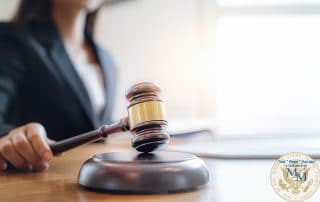Unified Trial
What Is A Unified Trial?Except in the Bronx, where unified trials are the norm, the general rule is that jury trials are bifurcated, with the issue of liability being decided first, followed by a trial on the issue of damages. However, there are limited circumstances where the plaintiff can ask for and be granted a unified trial. This circumstance generally arises where the issue of damages (i.e. the injuries) are relevant to the issue of liability. The most common scenario is a pedestrian knockdown case, where the defendant is claiming that (a) the pedestrian was never hit by the vehicle or (b) the pedestrian ran into the side of the vehicle as opposed to the front striking the pedestrian. These [...]






